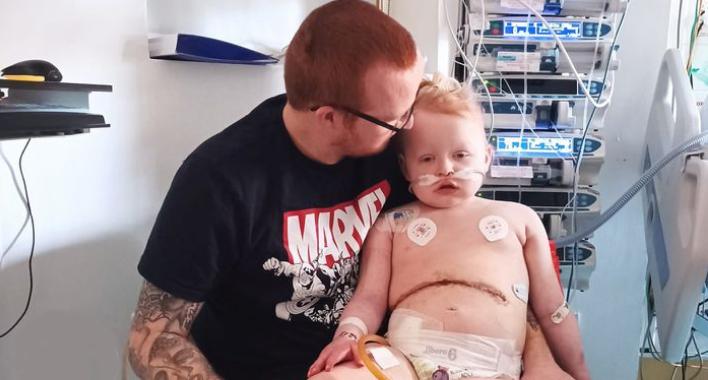
According to Sky News, Lola-Rose Raine, a three-year-old girl in the UK, was unfortunately infected with unexplained hepatitis in March this year. Subsequently, she was rushed to the hospital and her life was in danger. Her parents were told lola was suffering from acute liver failure and needed to urgently find a matching donor to survive.
Lola's father, Alan Raine, said the news was a thunderbolt to him.
"When the doctor told me my daughter needed a liver transplant or she might die," he said. This is not something that any father can accept. This is completely unexpected and heartbreaking. "
Lola's condition has been deteriorating, and she has been placed in an induced coma in intensive care units, which can give her body a chance to survive potential multi-organ failure.
Lola's parents both volunteered to be donors to their daughter's liver transplant, but father Alan's liver matched better. The surgery took seven hours. Half of Allen's liver was transplanted into his daughter. After the liver transplant, Lola's condition improved immediately.
Lola's parents were told that their daughter's liver failure could be caused by an adenovirus infection. The common virus usually causes flu-like symptoms, but it's unclear why so many cases of this unexplained hepatitis have popped up in children in the UK this year.
The UK Health Security Agency (UKHSA) said 108 cases had been identified so far, including the most serious one requiring a liver transplant. They are worried about this.
Dr Susan Hopkins, Chief Medical Adviser at UKHSA, said: "In the first three months of this year we have seen 8 children undergoing liver transplants, which is not the same as what we usually see. We need to investigate and understand why. These cases are rare and unusual. "
Tassos Grammatikopoulos, a consultant in paediatric hepatology at the hospital, said: "Investigations are still underway to find out what is driving this surge in cases. So far, we have determined that a significant proportion of these cases, about 77 percent, are associated with infection with adenovirus, but may also be caused by a number of other different infections. Lockdowns due to the COVID-19 pandemic may have played a role in this regard, as children do not have access to common pathogens and are not exposed to common infectious agents as they do when they are outdoors. ”
Lola is currently undergoing physical therapy to help her recover before she is discharged from the hospital.